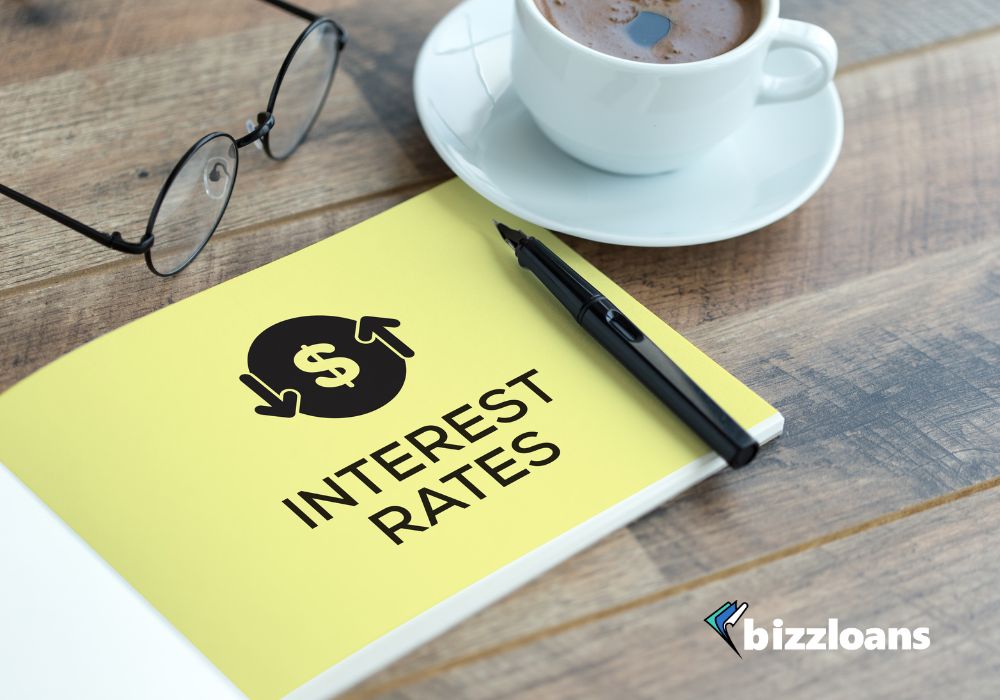When seeking financial assistance for their business needs, entrepreneurs often turn to business loans. However, understanding the intricacies of business loan interest rates is crucial for making informed decisions in the borrowing process.
Key takeaway:
- Understanding the average business loan interest rate is crucial for borrowers: It helps them evaluate the cost of borrowing and make informed financial decisions.
- Factors such as creditworthiness, loan amount, and business financial health significantly influence business loan interest rates.
- Careful calculation and comparison of interest rates are important for finding the most favorable loan terms. Online resources and financial publications can provide information on average business loan interest rates.
- Borrowers can secure a lower business loan interest rate by improving their creditworthiness, shopping around and negotiating, and offering collateral or personal guarantee.
Understanding Average Business Loan Interest Rate
Understanding average business loan interest rates is crucial for entrepreneurs and small business owners. The average interest rate can vary depending on factors such as the loan amount, repayment term, and the borrower’s creditworthiness. It is important to research and compare rates from different lenders to ensure you are getting the best deal. On average, business loan interest rates can range from 4% to 30%, with small business loans typically having higher rates compared to larger loans. It is also important to consider other fees and charges associated with the loan, such as origination fees and closing costs. Being aware of the average business loan interest rate can help you make informed decisions and manage your finances effectively.
Pro-tip: When applying for a business loan, maintain a good credit score, as it plays a significant role in determining the interest rate you will be offered. Additionally, having a well-prepared business plan and financial documents can increase your chances of obtaining a favorable interest rate.
What Is an Interest Rate?
An interest rate is the cost of borrowing money from a lender or financial institution. It is expressed as a percentage of the loan amount and represents the amount of interest that will be charged over a specific period of time. The interest rate is determined based on various factors, including the borrower’s creditworthiness, the loan amount and term, and prevailing market conditions.

Understanding what an interest rate is important as it helps borrowers determine the total cost of borrowing and make informed financial decisions. For example, a higher interest rate means that the borrower will have to pay more in interest over the life of the loan, increasing the overall cost. On the other hand, a lower interest rate can help borrowers save money and reduce their monthly loan payments.
It is crucial to consider the interest rate when taking out a loan, as it directly impacts the affordability of the loan and the total repayment amount. When shopping for loans, borrowers should compare interest rates from different lenders to find the best option that suits their financial needs. Additionally, borrowers should be aware of any additional fees or charges associated with the loan, as these can also affect the overall cost.
What Is the Importance of Average Business Loan Interest Rate?
The importance of the average business loan interest rate lies in its impact on the cost of borrowing for businesses. Understanding this rate is crucial for entrepreneurs and business owners seeking financing.
Firstly, the average business loan interest rate determines the amount of money businesses have to pay back in addition to the principal borrowed. A higher interest rate means businesses will have to repay more, increasing the overall cost of the loan. This can directly affect a company’s profitability and cash flow.
Secondly, the average business loan interest rate is an indicator of the risk associated with lending to businesses. Lenders use this rate to assess the creditworthiness of a business and determine the interest rate applicable to the loan. A higher interest rate may imply that the business is perceived as a higher risk borrower, while a lower rate indicates good financial health and stability.
Additionally, the average business loan interest rate affects the competitiveness of businesses. A lower interest rate can help businesses secure more affordable financing, allowing them to invest in growth opportunities, expand operations, or purchase necessary equipment or inventory.
Pro-tip: To obtain a lower business loan interest rate, it is important to maintain a strong creditworthiness, shop around and negotiate with different lenders, and consider offering collateral or a personal guarantee.
Factors that Influence Business Loan Interest Rates

When it comes to business loan interest rates, there are several factors that come into play. In this section, we’ll dive into the elements that influence these rates, including creditworthiness, loan amount and term, business financial health, and industry and market conditions. Let’s explore how each of these factors can impact your borrowing costs and ultimately shape your business’s financial landscape. So, buckle up and get ready to unravel the mysteries behind average business loan interest rates!
Creditworthiness and Credit Score
When it comes to obtaining a business loan, your creditworthiness and credit score are vital. Lenders use your credit score to evaluate the level of risk involved in lending you money. A higher credit score indicates a lower risk, increasing the likelihood of lenders offering you a lower interest rate.
Enhancing Your Creditworthiness: To improve your creditworthiness and increase your chances of securing a lower business loan interest rate, focus on maintaining an excellent credit history. Ensure timely payments on existing debts and keep your credit utilization ratio low. Regularly monitor your credit report for errors or discrepancies and rectify them promptly.
Comparing and Negotiating: Don’t settle for the first loan offer you receive. Shop around and compare interest rates from different lenders to find the best deal. Utilize your creditworthiness as a bargaining chip during negotiations. Remember, lenders want your business, so don’t hesitate to negotiate for a lower interest rate based on your strong credit profile.
Offering Collateral or Personal Guarantee: Another potential method for securing a lower business loan interest rate is by offering collateral or a personal guarantee. By providing an asset as collateral or taking personal responsibility for loan repayment, you minimize the lender’s risk, potentially resulting in a more favorable interest rate.
By recognizing the significance of creditworthiness and credit score, you can take proactive steps to improve your financial standing and increase your chances of securing a lower interest rate for your business loan.
Loan Amount and Term
| Loan Amount and Term | |
| Factors to consider: |
|
Business Financial Health
When it comes to business loans, the financial health of your business plays a crucial role in determining the interest rates offered. Here are some key factors to consider for maintaining a healthy business financial health:
- Profitability: A profitable business is viewed more favorably by lenders. Demonstrating consistent profits and a strong cash flow can help negotiate better interest rates.
- Debt-to-Income Ratio: Lenders assess the ratio of your business’s debt compared to its income. A lower ratio indicates better financial health and reduces the risk for the lender.
- Business Credit Score: Similar to personal credit scores, a good business credit score signifies a reliable borrower. Maintaining a high credit score by meeting payment obligations and managing debt responsibly can lead to lower interest rates.
- Financial Statements: Accurate and well-documented financial statements, including balance sheets, income statements, and cash flow statements, provide insight into your business’s financial health. These documents reflect your company’s ability to comfortably repay a loan.
- Cash Reserves: Building and maintaining adequate cash reserves demonstrates financial stability. A business with healthy cash reserves is more likely to secure better interest rates.
- Industry and Market Conditions: The stability and growth prospects of your industry impact the perceived risk of lending to your business. A thriving industry and a strong market position can enhance your business’s financial health.
By maintaining a healthy financial foundation for your business, you can improve your chances of securing a lower interest rate on business loans and ensure long-term financial stability.

Industry and Market Conditions
When it comes to business loan interest rates, industry and market conditions play a significant role in determining the rates offered to businesses. These conditions are influenced by various factors such as economic trends, competition, and the overall performance of the industry.
| Factors Affecting Industry and Market Conditions |
| Economic Trends |
| Competition |
| Industry Performance |
The current economic trends, such as inflation rates and interest rates set by central banks, can impact the overall cost of borrowing for businesses. Higher inflation or interest rates may result in higher business loan interest rates. Similarly, increased competition among lenders within the industry can lead to lower interest rates as lenders vie for borrowers.
The performance of the industry itself also plays a role. Industries that are experiencing growth and stability are more likely to have favorable business loan interest rates. On the other hand, industries facing challenges or in decline may have higher interest rates due to the perceived higher risk.
It is essential for businesses to stay updated on industry and market conditions to make informed decisions about borrowing. Monitoring economic indicators, studying industry reports, and staying in touch with lending institutions can help businesses navigate this aspect of securing a business loan.
By understanding and analyzing industry and market conditions, businesses can better assess the interest rates offered by lenders and negotiate favorable terms for their business loan.

Calculating and Comparing Business Loan Interest Rates
When it comes to calculating and comparing business loan interest rates, it is vital to gather accurate and relevant information. Understanding the interest rates offered by different lenders can assist you in making an informed decision for your business. Consider the following factors:
| Lender | Annual Interest Rate | Loan Amount | Loan Term |
| Bank A | 5% | $100,000 | 5 years |
| Bank B | 6% | $150,000 | 7 years |
| Bank C | 4.5% | $80,000 | 3 years |
Based on this table, Bank C offers the lowest annual interest rate, making it a favorable option for borrowers. However, it is crucial to consider the loan amount and the loan term, as they can impact the overall cost of borrowing. Assess your business’s financial needs and repayment capabilities to determine the most suitable loan option.
A true story that highlights the importance of calculating and comparing business loan interest rates involves a small restaurant owner. They approached multiple banks for a loan to expand their business. By carefully comparing the interest rates, loan amounts, and terms offered by different lenders, they were able to secure a loan from Bank A at a lower interest rate. This allowed them to proceed with their expansion plans and increase their profitability in the long run. Calculating and comparing interest rates can make a significant difference in the financial success of a business.
How to Calculate Interest Rate on Business Loans?
To accurately calculate the interest rate on business loans, follow these steps:
- Determine the loan amount. This is the total amount of money that you will borrow from the lender.
- Decide on the loan term. This refers to the length of time over which you will repay the loan.
- Find the annual interest rate. This is the percentage of the loan amount that the lender charges as interest over one year.
- To obtain the monthly interest rate, divide the annual interest rate by 12.
- Multiply the loan amount by the monthly interest rate to calculate the monthly interest payment.
- To calculate the total loan repayment, add the loan amount to the total interest paid over the loan term.
By following these steps, you can accurately calculate the interest rate on business loans.
Comparing Business Loan Interest Rates
When comparing business loan interest rates, it is crucial to carefully consider the numbers and do your research. Here is a table to help you compare different interest rates:
| Lender | Loan Amount | Term | Interest Rate |
| Bank A | $100,000 | 5 years | 6% |
| Bank B | $100,000 | 5 years | 8% |
| Bank C | $100,000 | 5 years | 5.5% |
In this example, Bank A offers the lowest interest rate at 6%, while Bank B has the highest rate at 8%. Bank C offers a slightly lower rate at 5.5%. It is important to consider the loan amount and term as well, as these can also impact the overall cost of the loan.
When comparing business loan interest rates, it is crucial to take into account any additional fees or charges that may be associated with the loan. Some lenders may offer lower interest rates but have higher fees, which can affect the overall affordability of the loan.

Pro-tip: Before making a decision, it is essential to thoroughly analyze and compare the interest rates and terms offered by different lenders. This will help you choose a loan that best suits the needs and financial health of your business.
Where to Find Information on Average Business Loan Interest Rates
Looking for information on average business loan interest rates? Wondering where to find the most accurate and up-to-date data? Look no further! In this section, we’ll guide you through the best sources to uncover this vital information. From trusted financial institutions and lenders to comprehensive online resources and financial publications, we’ve got you covered. Get ready to dive into a wealth of knowledge that will empower you in making informed decisions about business loans.
Financial Institutions and Lenders
When it comes to understanding business loan interest rates, it is essential to consider the role of financial institutions and lenders. Here are some key points:
- Financial institutions and lenders play a crucial role in providing business loans to entrepreneurs and companies.
- Banks, credit unions, and online lenders are examples of financial institutions and lenders, and they offer various loan options with different interest rates.
- These organizations evaluate the creditworthiness of borrowers to determine the interest rates they will offer.
- Each financial institution and lender has its own lending criteria and risk assessment methods when setting interest rates.
- It is important to research and compare the interest rates offered by different financial institutions and lenders to ensure you are getting the best deal for your business.
- Online resources and financial publications can provide valuable information on average business loan interest rates offered by various financial institutions and lenders.
- Some financial institutions and lenders may specialize in specific industries or types of loans, so it’s important to find the institution that best fits your business needs.
- If your creditworthiness is strong, you may have the opportunity to negotiate lower interest rates with financial institutions and lenders.
- Collateral or a personal guarantee may be required by some financial institutions and lenders to secure a lower business loan interest rate.
By understanding the options offered by different financial institutions and lenders, business owners can make informed decisions and secure the best possible loan terms for their ventures.
Online Resources and Financial Publications
When it comes to finding information on average business loan interest rates, there are various online resources and financial publications that can be of great help. Here is a list of such resources:
- Websites of Financial Institutions and Lenders: Many banks and lending institutions provide valuable information on their websites regarding different types of business loans and their associated interest rates. These resources can give you an idea of the average interest rates in the market.
- Online Financial Publications: Websites and online publications that focus on business and finance often publish articles or reports on current trends in business loan interest rates. They analyze market data and provide insights into the average rates for various industries or types of loans.
- Business Loan Comparison Websites: There are online platforms that allow you to compare different business loan options from multiple lenders. These platforms often provide information on interest rates offered by various lenders, helping you make an informed decision.
- Government Resources: Government agencies such as the Small Business Administration (SBA) may offer resources and publications on business loans, including average interest rates. Their websites can be a valuable source of information for entrepreneurs.
By referring to these online resources and financial publications, you can stay updated on the average business loan interest rates and make well-informed decisions when seeking financing for your business.

Tips for Securing a Lower Business Loan Interest Rate
Looking to secure a lower business loan interest rate? Then you need these game-changing tips! Boost your creditworthiness, find the best deals by shopping around and negotiating, and consider offering collateral or a personal guarantee. These strategies can make a significant difference in the interest rates you’re offered for business loans. Don’t miss out on the opportunity to save money and ensure the financial success of your venture. Let’s dive into these tips and unlock the secrets to a lower interest rate!
Improving Your Creditworthiness
To improve your creditworthiness and secure a lower business loan interest rate, you can take the following steps:
- Monitor your credit score: Regularly check your credit score and credit reports to identify any errors or negative factors that could be impacting your creditworthiness. Address any discrepancies or issues promptly.
- Pay bills on time: Make sure you pay all your bills, including loan repayments and credit card balances, on time. Late payments can negatively affect your creditworthiness.
- Reduce your debt: Work on paying off outstanding debts to lower your overall debt-to-income ratio. This can demonstrate to lenders that you have a lower risk of defaulting on a loan.
- Keep credit utilization low: Aim to keep your credit card balances below 30% of the available credit limit. High credit utilization can indicate financial instability and may lower your creditworthiness.
- Establish a track record: Build a positive credit history by maintaining accounts in good standing for an extended period. This demonstrates your ability to manage credit responsibly.
Improving your creditworthiness can significantly increase your chances of securing a lower business loan interest rate. Lenders are more likely to offer favorable terms to businesses with a strong credit profile and financial stability.
Shopping Around and Negotiating
When it comes to securing a lower business loan interest rate, it’s important to incorporate the keywords “shopping around” and “negotiating” naturally into the text. Here are some essential steps to consider:
- Researching multiple lenders: It’s crucial to shop around and explore different financial institutions and lenders in order to compare the interest rates they offer. By doing so, you can find the most competitive rates available.
- Understanding your creditworthiness: Your credit score plays a significant role in determining the interest rate that you qualify for. To improve your creditworthiness, make sure to pay bills on time, reduce debt, and resolve any credit issues that may exist.
- Gathering necessary documentation: To prepare for negotiations, gather all relevant financial documents such as tax returns, financial statements, and business plans. These documents will show lenders that you are ready and serious about the loan.
- Negotiating loan terms: Once you have received offers from multiple lenders, take the opportunity to negotiate the terms of the loan, including the interest rate. Be ready to leverage competitive offers and emphasize your creditworthiness and the financial stability of your business.
- Considering collateral or personal guarantee: Offering collateral or providing a personal guarantee can help to lower the interest rate, as it offers additional security for the lender. However, it’s important to carefully assess the risks and benefits of this option before making a decision.
By effectively shopping around and negotiating, you can increase your chances of securing a lower business loan interest rate, ultimately saving your business money in the long run.

Offering Collateral or Personal Guarantee
When securing a business loan, offering collateral or a personal guarantee can be beneficial in obtaining a lower interest rate:
- By providing collateral, such as property, equipment, or inventory, borrowers can reduce the risk for the lender. This gives the lenders assurance that they can recoup their losses if the borrower defaults on the loan.
- A personal guarantee involves the borrower taking personal responsibility for loan repayment. If the business is unable to repay the loan, the borrower’s personal assets can be used to satisfy the debt.
By offering collateral or a personal guarantee, borrowers demonstrate their commitment to repaying the loan, which can increase their creditworthiness in the eyes of lenders. This reduces the perceived risk and allows lenders to offer lower interest rates.
It’s important to carefully evaluate the terms of offering collateral or a personal guarantee, as it can involve potential loss of assets in case of default. Consulting with financial advisors or legal professionals can provide valuable guidance on the risks and benefits of these options.
Some Facts About Deciphering the Average Business Loan Interest Rate:
- ✅ The interest rate on SBA 7(a) loans is determined by adding the Prime Rate, set by the Federal Reserve, with an additional markup. (Source: Our Team)
- ✅ Bank term loans typically offer lower interest rates, longer repayment terms, and structured repayments for small businesses. (Source: Our Team)
- ✅ Business lines of credit may have low advertised interest rates, but the actual rates can vary widely and depend on the lender and the business’s finances. (Source: Our Team)
- ✅ Equipment financing allows small businesses to use loan proceeds for purchases, and the interest rates for equipment financing vary widely depending on various factors. (Source: Our Team)
- ✅ The interest rates offered for small business loans depend on factors such as credit scores, loan specifics, revenue trends, market trends, and both personal and business credit scores matter. (Source: Our Team)
Frequently Asked Questions
What factors determine the average business loan interest rate?
The interest rates offered by lenders are primarily determined by factors such as credit scores, loan specifics, revenue trends, and market trends. Both personal and business credit scores matter in determining the loan terms. The loan term, application process, and funding speed also influence the interest rate. Lenders prefer businesses with growing and profitable revenue trends. Market rates, tied to the Prime Rate, also affect interest rates.
What are the advantages of fixed interest rates for commercial real estate loans?
Fixed rates are best for long-term loans like commercial real estate or equipment loans, allowing for better budget planning. With a fixed interest rate, borrowers can lock in a specific rate for the entire loan term, providing stability and predictability in monthly payments. This can be particularly beneficial for businesses that operate with fixed profit margins and want to avoid potential rate increases.
How can comparison shopping help small business owners find the best loan rates?
It is important to shop around and compare rates for the best option, considering additional costs like origination and servicing fees. Small business owners can approach multiple lenders and request loan quotes to compare interest rates, terms, and fees. By doing so, they can identify lenders offering more favorable loan terms and potentially secure a lower interest rate for their business loan.
What are the benefits of variable interest rates for short-term business loans or lines of credit?
Short-term loans or business lines of credit may benefit from variable interest rates. Variable rates allow borrowers to take advantage of rate drops without long-term commitments. If the interest rates decrease over time, borrowers can benefit from lower monthly payments and potentially save on interest costs. However, it’s crucial to carefully evaluate the terms and conditions of variable-rate loans to understand the potential risks of interest rate fluctuations.
What is a good interest rate for a small business loan?
A good interest rate for a small business loan is typically between 6% and 17%. However, the specific interest rate a business qualifies for will depend on various factors such as creditworthiness, the strength of the business’s financials, and credit history. It’s important for small business owners to compare rates from different lenders to determine the best option for their specific financing needs.
What other types of small business financing have high interest rates?
Other types of small business financing, such as invoice factoring, merchant cash advances, and online small business loans, can have interest rates ranging from 25% to 350% or more. These financing options often target businesses with less favorable credit profiles or those in need of quick, short-term funding. It’s important for business owners to carefully evaluate the terms and costs associated with these financing options before proceeding.


